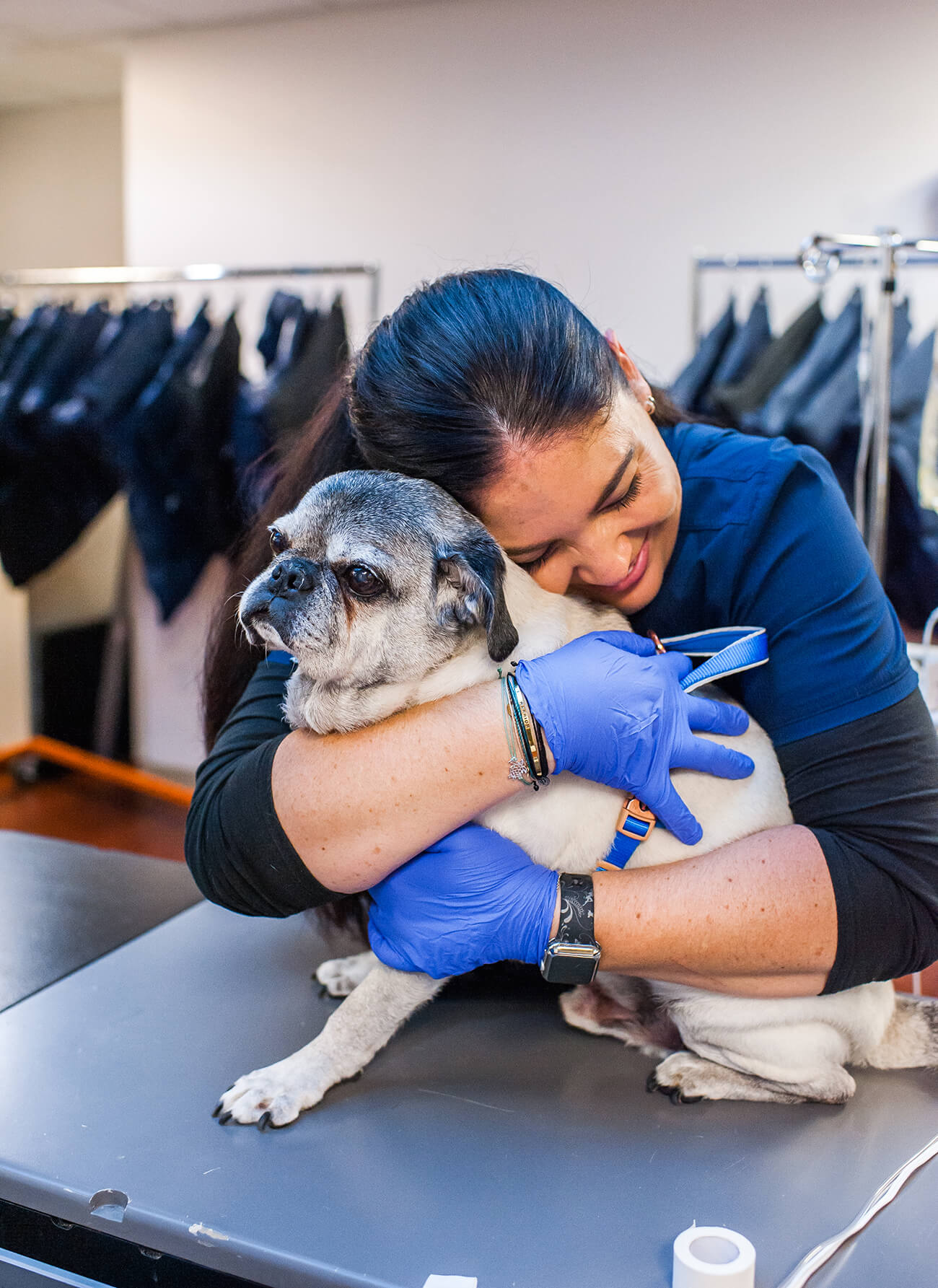What to Expect with Radiation Therapy
We administer radiation therapy using a linear accelerator, which delivers ionizing radiation to the malignant cells to stop them from growing and multiplying. This treatment mainly affects cancer cells, but it can also affect normal, healthy cells in your pet’s body. To combat this, we might spread out your pet’s radiation treatments over a series of consecutive appointments. Appointments last about 15-30 minutes each, and pets are typically allowed to go home that same day.
The success of your pet’s radiation therapy may vary based on these factors:
The size and location of the cancer
Your pet’s overall health
The type of cancer being treated
Radiation therapy may result in side effects occurring about halfway through the prescribed dose, and last for up to 3 weeks. At Fetch, we provide topical and oral medications to help minimize any effects on your pet’s quality of life. If you are interested in radiation therapy for your pet, please contact us and we can determine if they will benefit from this procedure, and answer any questions or concerns you may have.
Radiation Therapy Services
We offer several forms of radiation therapy based on the individual needs of each patient.


"Dr. Byrne is great! She is treating our Haley for lymphoma and we are very impressed with her knowledge, caring, compassion, and “bedside” manner. She has spent as much time as we needed, and wanted, in helping us understand Haley’s treatments and care plan. The entire staff have been so kind and caring to deal with."
Don B. | Fetch Client

